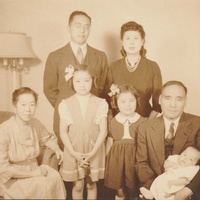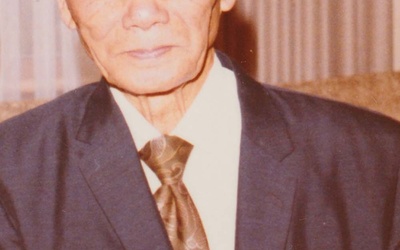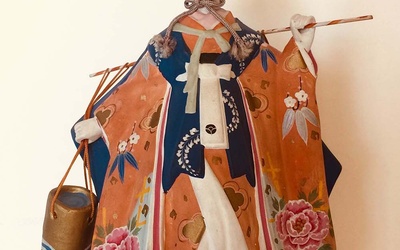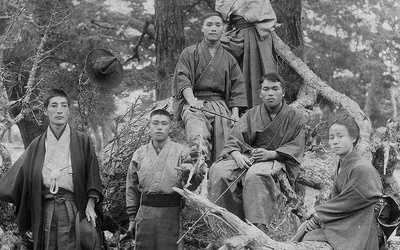Gifts from Jichan and Bachan

This series began as an annotated catalogue of the magical gifts I’ve received from Jichan and Bachan, Nisaku and Masa Araki. From young adulthood, I realized that unconditional love was the most precious gift that Jichan and Bachan gave to me. But in my old age, reminiscing about my happy, early childhood, before and after my incarceration at Camp Minidoka, I have realized that Jichan and Bachan gave me many other precious gifts, including the gift of Japanese Meiji-era culture and values. It is my hope to describe those gifts in this series.
Stories from this series
Gifts from Japan
Sept. 16, 2020 • Susan Yamamura
Jichan and Bachan brought back many beautiful gifts from their trips to Japan. They ordered lovely, hand-dyed silk kimonos for my mother, my sister Louise, and me, each embellished with the Araki family crest. Beautiful belts (obi) were part of each kimono set. One year, they gave me a gorgeous brocade piece fabric which shimmered with silvery threads. Growing up with Jichan and Bachan, I learned a complex and loving pattern of customs around gift giving and receiving, an important …
Dolls
June 11, 2020 • Susan Yamamura
The first gift I remember receiving from Jichan and Bachan was a gift of Japanese culture, the celebration of Girls’ Day or Hinamatsuri, a Japanese holiday celebrated every year on March 3rd. I “remember” my first Girls’ Day now because of photographs taken by my uncle, Shosuke Sasaki. Though not a professional, Uncle Shosuke was an expert photographer and he took a picture of me at about nine months of age in front of a Girls’ Day display in March …
The Home That Jichan and Bachan Built
May 7, 2020 • Susan Yamamura
How Jichan Became an Araki Although Jichan was born Nisaku Kaneda, the second of four sons in the Kaneda family of Fukui-ken, when he married, he took the family name of his wife, Masa Araki, acting as a yoshi, so that the Araki family name could be continued. Jichan, around twenty-seven years old, and Bachan, about twenty, were married in Tacoma, WA in December of 1913. Bachan was an only child, and as a female, she could not carry on …





